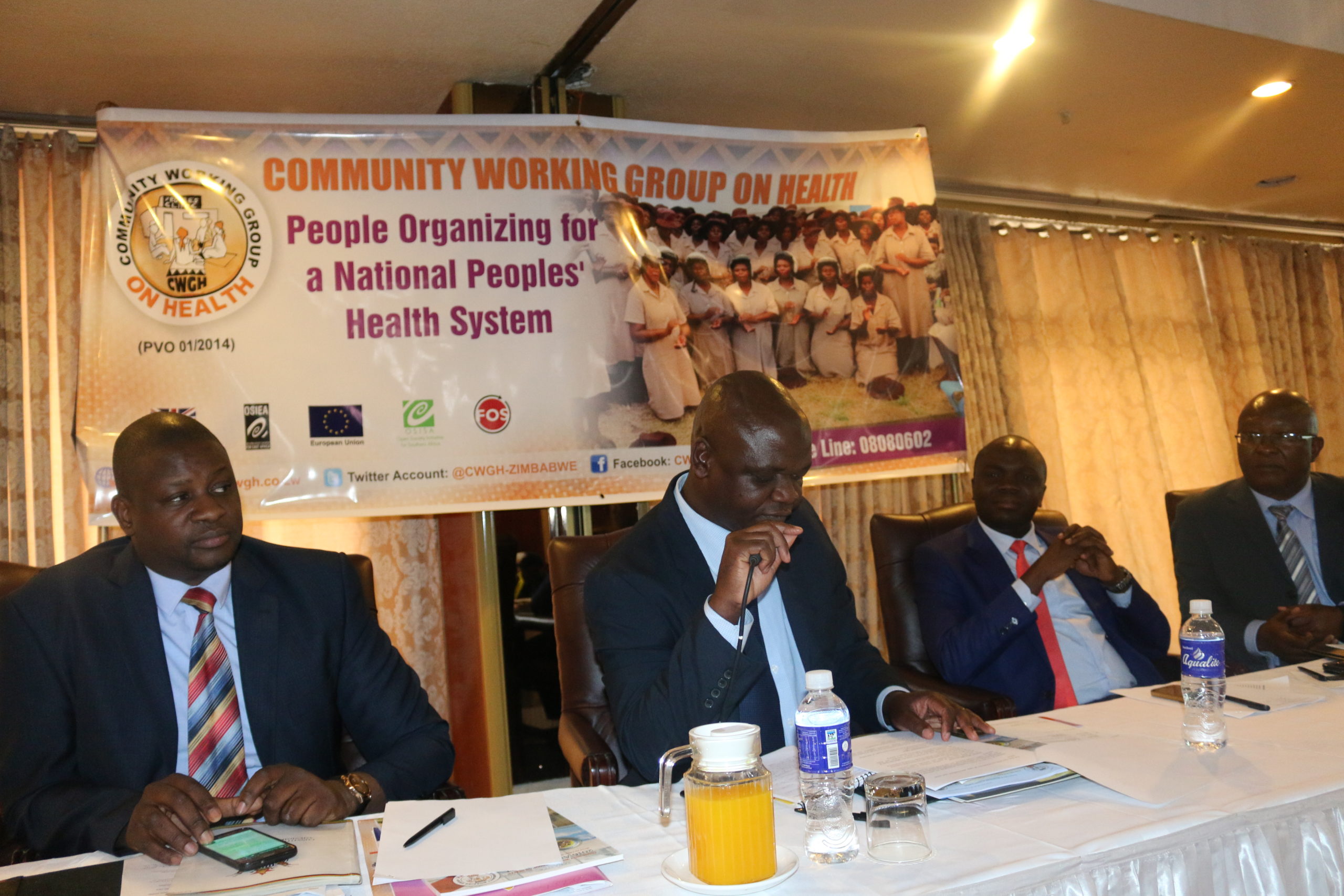By Byron Mutingwende
Lizzy Kanyimo (eight months pregnant) arrives at the local clinic, her stomach bulging. In the left hand she is holding a stick that helps her to get balance. Her left leg is shorter than the right one.
“So these cripples loves sex as well! These men are cruel. How can her husband leave her to come here alone when it’s obvious that she will have difficulties walking? It’s her fault anyway. How could she fall pregnant in that condition?” a woman among the group of about 20 other pregnant women waiting for medical examination at a clinic in remote Mudzi District chuckles before others join in in uncontrollable laughter.
Such stigma and discrimination, though regrettable, is common among people with disabilities (PWDs). Senator Anna Shiri, a representative of the disabled people in the Parliament of Zimbabwe decries such behavior and calls for awareness campaigns on the rights of PWDs.
“There is a shocking negative attitude towards people with disability in society. The ordinary members of the community do not only perpetrate such negative stereotypes but in many instances, even health workers are culprits. The Constitution is clear on health rights for all in Section 29 and 76.
“Besides the stigma, PWDs also have challenges in accessing information on health. As we are deliberating here, the information at this meeting is not in Braille to assist the visually impaired and neither is there a sign language interpreter to assist those hard of hearing. People should understand that disability is a human rights issue. There should be a policy framework to take offenders against PWDs to court,” Shiri said in her contribution during the Community Working Group on Health 24th Annual National Meeting held at the Rainbow Towers on Thursday 22 June 2017.
The legislator called for inclusivity in healthcare provision in line with the 2030 Agenda, which emphasizes on “Leaving No One Behind.” She encouraged the inclusion of PWDs in the structures of healthcare providers like Village Health Workers. Shiri also called for the scrapping of hospital user fees, citing a pregnant woman with disability who was detained at Harare Central Hospital for failing to settle her medical bills.
In his remarks at the meeting held under the theme,” People organizing for a national people’s health system”, John Ngirazi, the CWGH Executive Committee Chairman, bemoaned the fact that Zimbabwe had recently experienced outbreaks of medieval diseases like typhoid, cholera, dysentery and scurvy.
“Let it be noted that Zimbabwe’s health challenges are also compounded by health system constraints such as critical shortages of personnel, ageing equipment and infrastructure, shortages of medicines, limited funding and lack of enabling health policies,” Ngirazi said,
He called for equity and universal health coverage in the country in line with the primary healthcare philosophy. While the country registered success of reduction in both HIV and AIDS incidence and prevalence, it has not yet stopped new infections nor stopped AIDS related deaths. The deteriorating indicators and risky behaviours amongst the youth and the increasing number of teenage pregnancies threaten gains achieved to date.
It also emerged that the antiretroviral therapy (ART) coverage was high but not universal, and that the TB prevalence mirrored that of HIV. The supply of basic drugs and health services remained erratic to the extent that some patients died from preventable or treatable diseases.
“Neglected tropical diseases like bilharzia, intestinal worms, elephantiasis, leprosy and blinding trachoma (that have in the past not received much attention) have become highly prevalent. These are compounded by an equally huge non-communicable burden of nutritional insufficiency, cancers, hypertension, heart disease, diabetes, among others. Most of these are fuelled by determinants that are outside the ministry of health and therefore require concerted efforts by all sectors to address these causes of illness.
“How can we not fall sick when we drink contaminated water? When raw sewer runs past our doorsteps? When we buy cooked food in the streets or live in poorly lit and overcrowded shacks? When garbage is not being collected from our homes?” Ngirazi quipped.
Dzimbabwe Chimbga, a prominent human rights lawyer, said health legislation should be benchmarked against what the Constitution says.
“Any decisions by government departments should reflect the Constitution. The practice of detaining pregnant women and the old people for failing to pay medical bills defies logic. Local authorities are violating people’s rights by installing pre-paid water meters. This is contrary to provisions of Section 76 of the Constitution. Water is a right which should not be privatized in pursuit of capitalism,” Chimbga said.
Vengesai Eric Mukutiri, the Deputy Executive Secretary of the Zimbabwe Human Rights Commission said there was need for all to claim the right to health and operationalize the right to health as espoused in Sections 29, 73, and 76m of the Constitution of Zimbabwe. He added that the United Nations Covenant on Economic, Social and Cultural Rights was applicable to the discussion on the right to health.
“The provisions on the right to health within the Constitution of Zimbabwe are fairly straightforward and easy to understand. They essentially make it an obligation on the part of the state to provide basic health services, including healthcare, emergence medical treatment, as well as ensuring an environment that is not harmful to people’s health and wellbeing,” Mukutiri said.






